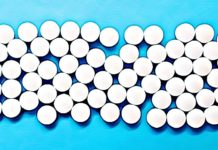35 percent in 2002 to 28 percent in 2010. The descent in this kind of treatment is partly due to the misconception that patients utilizing medication-assisted treatment are replacing one addiction for another, which is not what the medications are designed to do if used properly.
These implants can help those struggling with opioid addiction, but they do leave open the possibility for overuse if the person continues to take drugs while they use the implant. This could lead to worsening the dependence. Other factors contributing to the dwindling use of the treatment methods are the lack of consummate training and discrimination against MA patients.
The FDA cited a study in the press release announcing approval for Probuphine implants that showed 63 percent of the patients treated with the implant showed no evidence of using opioids again throughout the six-month period they were treated with Probuphine. Similar results were reported for those who were treated with buprenorphine orally.
Though there are risks, the new proliferating method for treating addiction can help millions of people if safely administered, correctly used, and properly emphasized, both in funding as well as in the rhetoric that surrounds addiction treatment and rehab.















